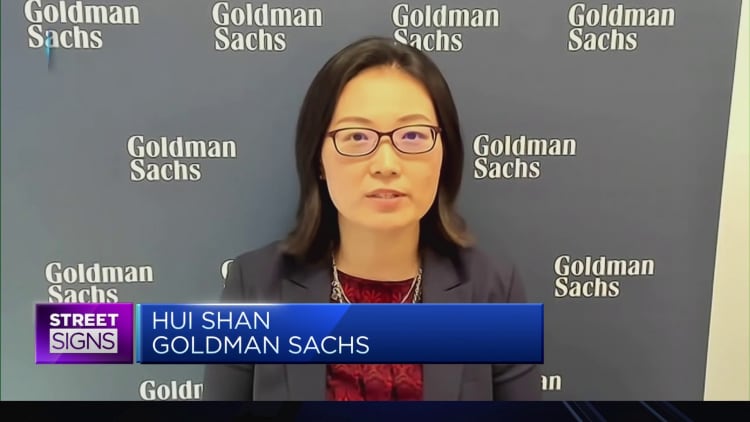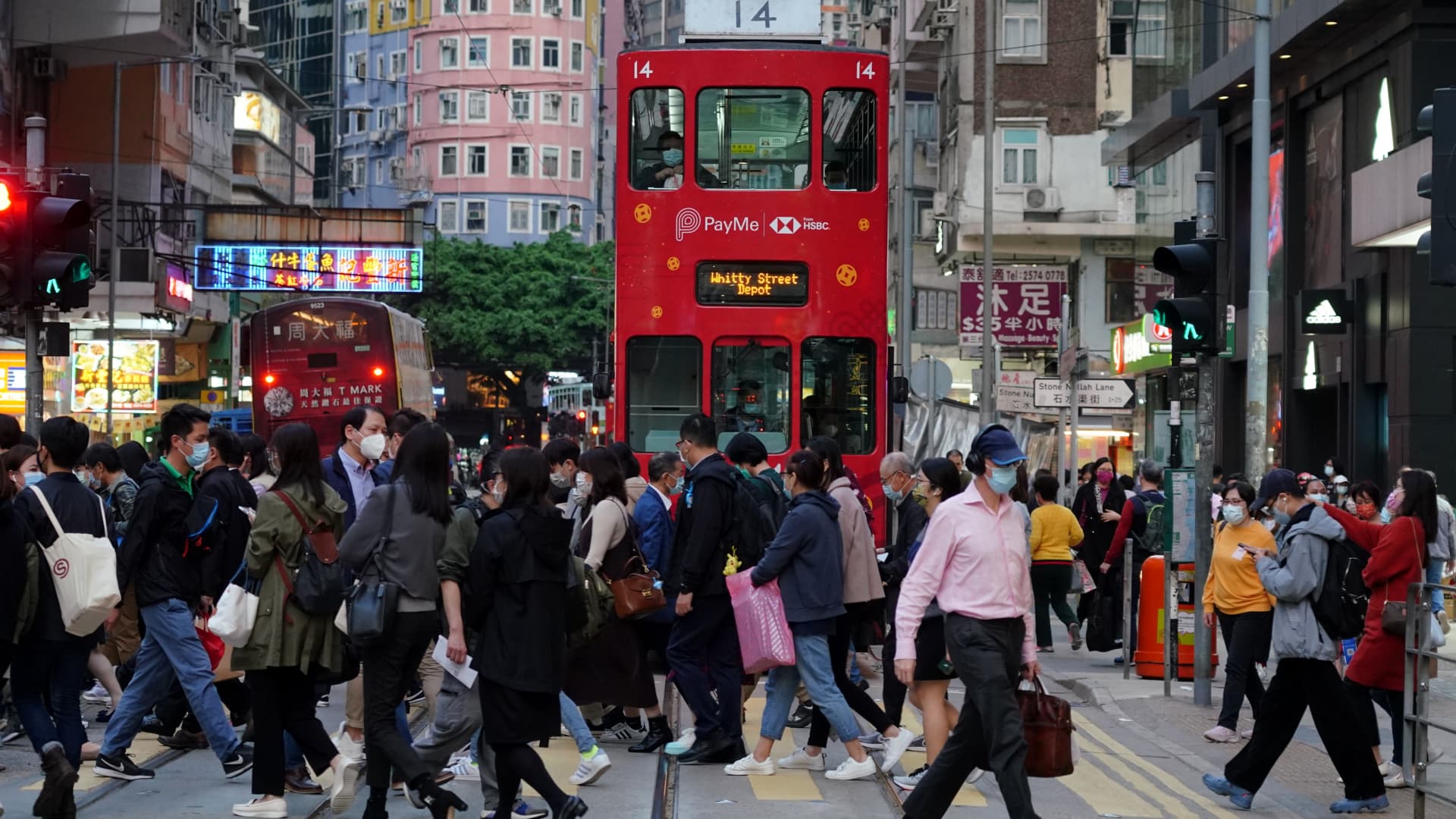People wearing face masks crossing a street at Hong Kong’s Wan Chai district on Feb. 16, 2021.
Zhang Wei | China News Service | Getty Images
Hong Kong’s benchmark index entered bear market territory Wednesday on an intraday basis, erasing the rebound gains from China’s reopening.
The Hang Seng index hit a session low of 18,105.78. That’s 20.2% below its 52-week closing high of 22,688.9 reached on Jan. 27. A technical bear market is defined as when prices fall 20% below recent highs.
Hong Kong technology stocks were among the leading decliners for the overall index, including internet company NetEase and e-commerce platforms Meituan and JD.com. Alibaba shed nearly 3%, Baidu fell more than 4%, and Bilibili plunged by 6%.
The Hang Seng Tech index has already fallen by more than 25% from its January peak. That’s a stark contrast to the reopening optimism that had once driven Asia-Pacific’s benchmark MSCI Asia Pacific index to a bull market.
The Hang Seng China Enterprises index, which measures the performance of the 50 largest and most liquid mainland Chinese companies listed in Hong Kong, has also retreated by more than 21% from its January peak.
Analysts had initially expected China’s economy to recover faster and earlier than expected, but that view quickly faded after the country continued to deliver disappointing economic data.
The latest factory activity reading for China came in at 48.8, below the 50-mark that separates growth from contraction — and missing the 49.4 estimate from a Reuters poll.

Morgan Stanley analysts said in a May 17 report that a weak reading in that manufacturing measure “has been a solid precursor to policy easing.” Economists told CNBC that a disappointing rebound could lead to more government stimulus ahead.
“If growth does not accelerate sufficiently to narrow the output gap, social stability risk may rise and eventually trigger more meaningful stimulus,” Morgan Stanley analysts wrote in the note.
The National Bureau of Statistics noted the purchasing managers’ index for large manufacturers came in at 50, while that of smaller manufacturers was lower. The index for services activity remained in expansionary territory at 54.5, but marked a second-straight month of decline.
Demand a major concern
Citi economists wrote in a Wednesday note that the latest economic data missing expectations by a large margin is seen as “signs of fatigue with the initial reopening impulse peaking.”
“Insufficient demand could be the major concern now, and there are both cyclical and structural causes for it,” they wrote, adding the “initial boost to the services sector from reopening could be fading.”
Citi economists also expect the People’s Bank of China to cut its medium-term lending facility rates by 20 basis points and its reserve requirement ratio by 50 basis points by the end of the year.
“We reckon that the Chinese economy could be on the verge of a self-fulfilling confidence trap and believe decisive policy actions are needed,” they wrote.
“There could be limited room for fiscal easing from the budget and we expect structural easing efforts with more efforts from the central government and quasi-fiscal tools via policy banks,” they wrote.
– CNBC’s Evelyn Cheng contributed to this report


